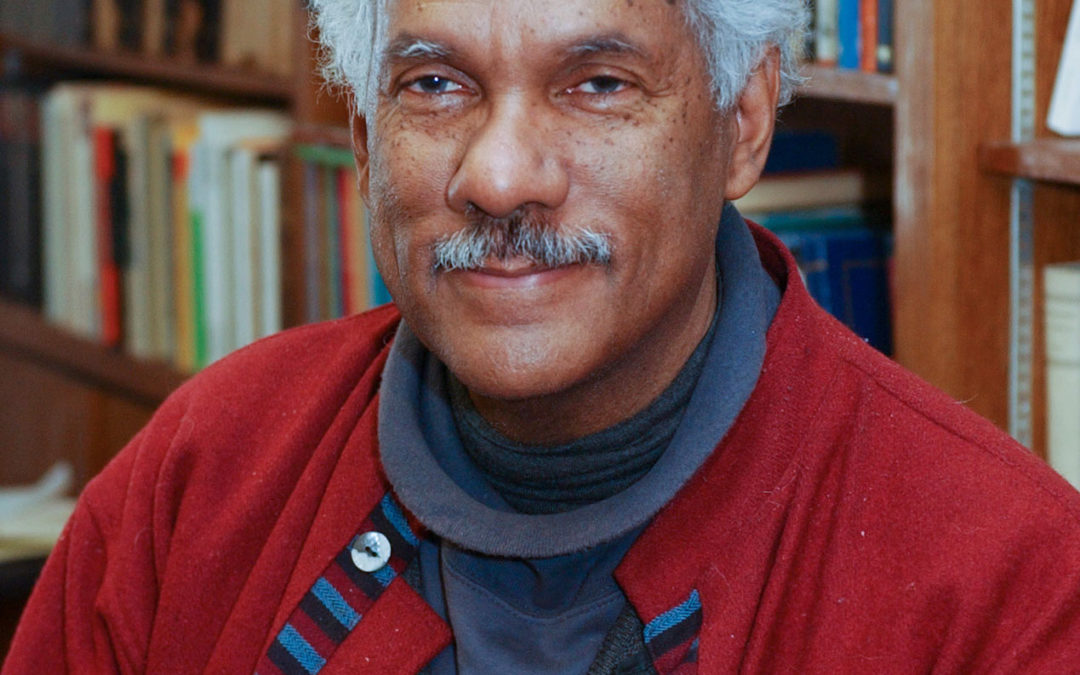
Albert Raboteau, expert on African American religious history, dead at 78
(RNS) — Albert J. Raboteau, an American religion historian who helped students and journalists enhance their understanding of African American religion, has died.
The scholar died on Saturday (Sept. 18) in Princeton, New Jersey, years after being diagnosed with Lewy Body Dementia, Princeton University announced. He was 78.
A Princeton faculty member since the 1980s, Raboteau reached emeritus status in 2013. He chaired the university’s religion department from 1987 to 1992 and was dean of its graduate school from 1992-93.
“Professor Raboteau taught me so much: how to move about the archive, how to trust and be comfortable with my questions, and how to write clearly and with sophistication,” Eddie Glaude Jr., chair of Princeton’s African American studies department, said in a Princeton statement. “His brilliance knew no boundaries. His work helped create an entire field, and he could move just as easily in the fields of literature and film.”
When a book editor came to campus seeking to learn about Raboteau’s next book, a Princeton appreciation noted, the author instead arranged a meeting with the editor and Glaude, leading to the publication of the then-graduate student’s first book.
In addition to his years of mentoring students, Raboteau also gave journalists his perspective on the history of the Black church and contemporary religious attempts to address racism.
At a 2015 Faith Angle Forum discussion, he addressed reporters on the topic ” Forgiveness and the African American Church Experience.” Raboteau said small, face-to-face cross-racial gatherings, such as Bible studies and sharing meals, could be more important than statements of apology about racism by predominantly white denominations.
“What we are as a nation is a collection of disparate stories, an ever exfoliating set of separate stories and what we need to bind us together is to be able to hear the stories of others in face-to-face encounter,” he said. “And that can be sponsored by churches; churches would be a natural place to sponsor that kind of face-to-face contact.”
Raboteau was known for his writings about African American faith, most especially the book “Slave Religion: The ‘Invisible Institution’ in the Antebellum South” as well as “Fire in the Bones: Reflections on African American Religious History” and “Canaan Land: A Religious History of African Americans.”
An “In Memoriam” Princeton tribute described his 2002 book “A Sorrowful Joy” as a volume that reflected “the stakes of the study of African American religious history as a Black man from Bay St. Louis, Mississippi whose father was murdered by a white man before he was born and as a Christian believer whose religious formation took place first in the Roman Catholic Church and in later years in Eastern Orthodoxy.”
Across social media this week, scholars of religion described Raboteau’s personal influence on them.
“For me, Al wasn’t the usual kind of mentor,” tweeted Anthea Butler, professor of religion at the University of Pennsylvania. “He was an ideal to me about both scholarship and spirituality.”
She added, in the last tweet of a thread that seemed to give a nod to his conversion to Orthodox Christianity: “Finally (and not sure if he would a. like this or b. chastise me) but I would pay a lot of money if someone painted Al Raboteau as an icon. For me, he is the patron saint of the study of African American Religion. May he rest in eternal peace and bliss.”
Cornel West, a Princeton emeritus professor who now teaches at Union Theological Seminary, tweeted after the death of his colleague of more than four decades that Raboteau “was the Godfather of Afro-American Religious Studies & the North Star of deep Christian political sensibilities! I shall never forget him!”
Raboteau also was the author of “African American Religion,” a 1999 volume in the “Religion in American Life” series published by Oxford University Press.
He wrote in its first chapter of the historical role of slave preachers and other Black pioneers whose sermons reached free Black people as well as the enslaved.
“The growth of Baptist and Methodist churches between 1770 and 1820 changed the religious complexion of the South by bringing large numbers of slaves into membership in the church and by introducing even more to the basics of Christian belief and practice,” he wrote. “The black church had been born.”
In 2016, when the U.S. Postal Service honored African Methodist Episcopal Church founder Richard Allen with a postage stamp, Raboteau told Religion News Service: “The unwillingness of the Methodists to accept the independent leadership of Black preachers like Allen and the institution of segregated seating led Allen and (clergyman Absalom) Jones to found independent Black churches.”
Late in life, Raboteau continued to interpret lessons of religious and racial history in his 2016 book “American Prophets: Seven Religious Radicals and Their Struggle for Social and Political Justice.” He said the book, which included chapters on Rabbi Abraham Joshua Heschel, the Rev. Martin Luther King Jr. and Fannie Lou Hamer, was based on his “Religious Radicals” seminar that he taught undergraduate students at Princeton for several years.
Raboteau wrote the book’s introduction as the U.S. marked the 50th anniversary of Alabama’s Selma to Montgomery voting march.
“Memory and mourning combine in prophetic insistence on inner change and outer action to reform systemic structures of racism,” he said.
Raboteau added an anecdote about his own visit to Selma several years before with Princeton alumni and students who visited a museum close to the town’s famous Edmund Pettus Bridge, where activists had once been beaten back by state troopers. On the trip, a Black museum guide who was beaten on the bridge as a young girl encountered a retired white Presbyterian minister who had joined the demonstrations after King requested support from the nation’s clergy.
“It was a moment of shared pathos that transcended time,” he recalled. “For me it was the high point of the trip. I no longer needed to cross the bridge.
